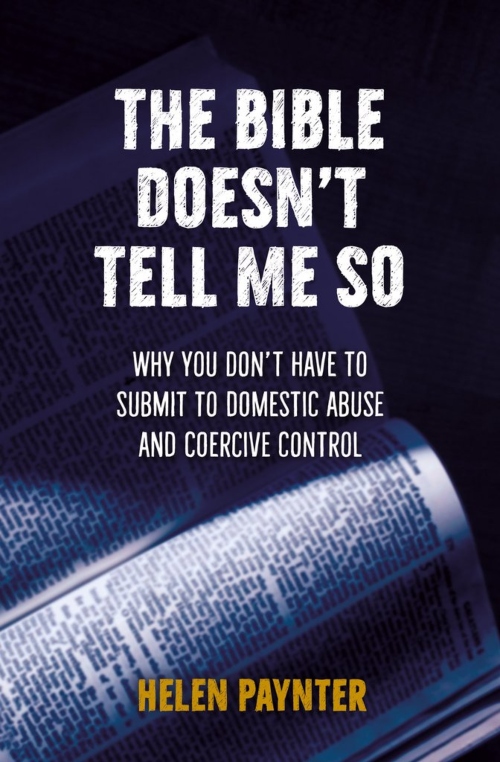The Bible Doesn’t Tell Me So by Helen Paynter
Carefully crafted to be both deeply theological and highly readable, this is an important book addressed directly to women experiencing domestic abuse, and to those who seek to support them
 The Bible Doesn’t Tell Me So: Why You Don’t Have to Submit to Domestic Abuse and Coercive Control
The Bible Doesn’t Tell Me So: Why You Don’t Have to Submit to Domestic Abuse and Coercive Control
By Helen Paynter
The Bible Reading Fellowship
IBSN: 978 0 85746 989 2
Reviewed by: Jenni Entrican
This is an important book, and even more so during this time of COVID pandemic when levels of domestic abuse have significantly increased. As the title suggests, it is clear that specific interpretations of the Bible are used to validate totally unacceptable violations against women by their partners. Helen names this as ‘scripture being weaponised against women’, and her aim is to show that the Bible does not support the abuse of anyone.
It is an important book too because of the hidden nature of domestic abuse, particularly within Christian communities who believe that ‘it doesn’t happen here’, or that it is simply a relationship issue where counselling can help, or that it is the fault of the person being abused who needs to deal with low self esteem, or forgive the abuser. If this sounds simplistic, the reality is that these reactions are not uncommon, and thus perpetuate behaviour that is so contrary to God’s intention for humankind.
Thus, Helen’s book, addressed primarily to those suffering abuse, but also to those who support them and church leaders, does an excellent job of unpacking, both the whole sweep of the Biblical narrative, as well as specific scripture passages which are used to validate abusive behaviour. She addresses the Genesis account of the creation of men and women and their relationship; Paul’s exhortation to submit to one another, alongside the revolutionary injunction for men to love their wives as Christ loves the church; truths about what forgiveness looks like; how Jesus viewed and treated women and what God’s heart is for those who are abused.
She finishes briefly by addressing those trapped by an abuser, church leaders on how they can support such, and lastly, she addresses someone who is an abuser.
This book, standing alongside other important books, has an important place in recognising and helping us to deal with what is a hugely important Kingdom and justice issue. It is time for us to grapple with the reality of violence and coercion of women within society as a whole, and particularly within the Christian church.
In one way it is not an easy read as Helen draws on the lived experiences of women who have been in contact with her and we should weep at their stories. However it is carefully crafted to be both deeply theological, yet simple to read. I highly recommend reading this book and offering it to others, as a resource, but also to bind up some very real wounds.
As I have travelled through the UK and Europe these past five years as Baptists Together and European Baptist Federation Presidents, I have met many fascinating and wonderful women, but I have also been aware of how often women are not given the opportunities to use their gifts freely. The more I hear and read of the way the female gender is treated worldwide, the more my heart cries out for more books like these, and for more people to engage with issues of gender justice.
Jenni Entrican was European Baptist Federation President 2017-19, and is a member of the Baptist World Alliance Commission on Racial, Gender and Economic Justice 2020 -2025
Baptist Times, 18/11/2020